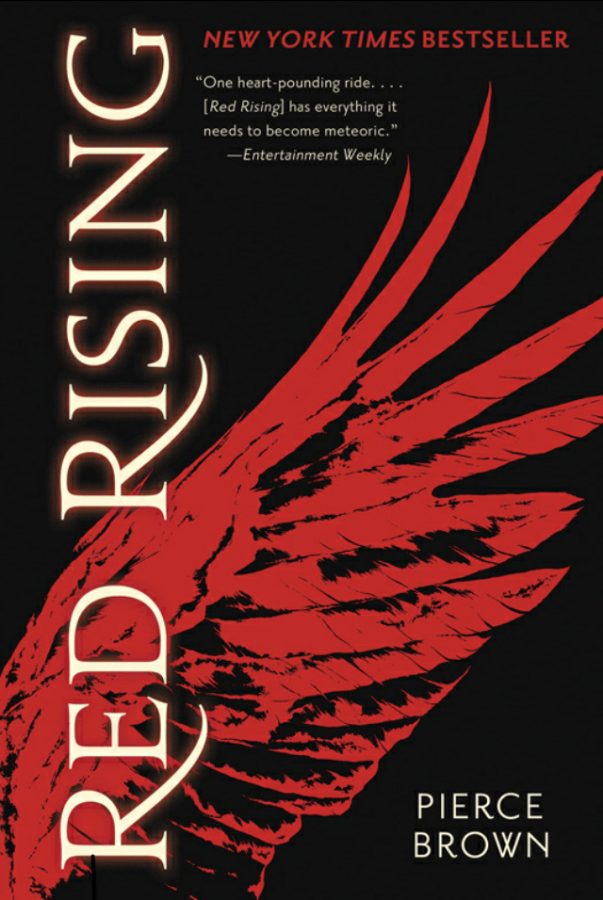‘Red Rising’ explains the aftermath of large-scale warfare
November 30, 2018
War is often a rough topic to cover in general, notably due to its supposed lack of resolution. Novels such as “The Hunger Games” or “The Maze Runner” adhere to the stigma that after the war concludes and the conflict is resolved, all the main character’s problems become solved; it completely ignores the physical, mental, and emotional repercussions of the war to any and all other parties involved, as well as the landscape of the battle.
This type of resolution is a trademark of the science-fiction genre, and, pleasingly, Pierce Brown’s Red Rising puts it to shame and serves as a must-read for fans of the Science-Fiction genre.
The “Red Rising” series follows the political ascension of Darrow of Lykos, a lowly miner from Mars. Darrow is a Red, the lowest tier of the hierarchy imposed by the Sovereign, a member of the highest tier, the Golds. He is rescued by a Resistance group called the Sons of Ares, who has him carved, or transformed, into a Gold and send him on a mission to infiltrate the Gold Society and enact a takeover from within.
One of Darrow’s biggest concerns throughout the series is how the war will come to a close, what will be left of society, and if there will be enough pieces left to put back it together. His concern for the future increases the immersion and connection to the character.
For example, Darrow and his companions have to consider the effect of a full-blown war on Mars and how it will affect the planet. While the conclusion of the book did end happily for Darrow and company, it still addressed the problems in government and loss of lives, providing a basis for a competent resolution.
The government is the central problem throughout the series, and as the story progresses it becomes evident that the government is also the answer. If society is to be fixed, the government has to be revamped and under new leadership, which is considered heavily by the characters. Who will lead, how they will lead, and the government’s structure are all problems questioned throughout the story, with the narrative focusing more on the aftermath and the world the heroes envision, as opposed to the ongoing battle. The characters always try way the costs and consider if the end justifies the means.
While the author took into account the characters thoughts and feelings towards the war, as well as the effect on the surrounding universe, he took it even further and has dedicated an entire sequel trilogy to the complicated aftermath of a war on a worldly scale. The Fourth Book and the first of the sequel trilogy, Iron Gold was released on January 16, 2018, with its sequel Dark Age coming in 2019.


